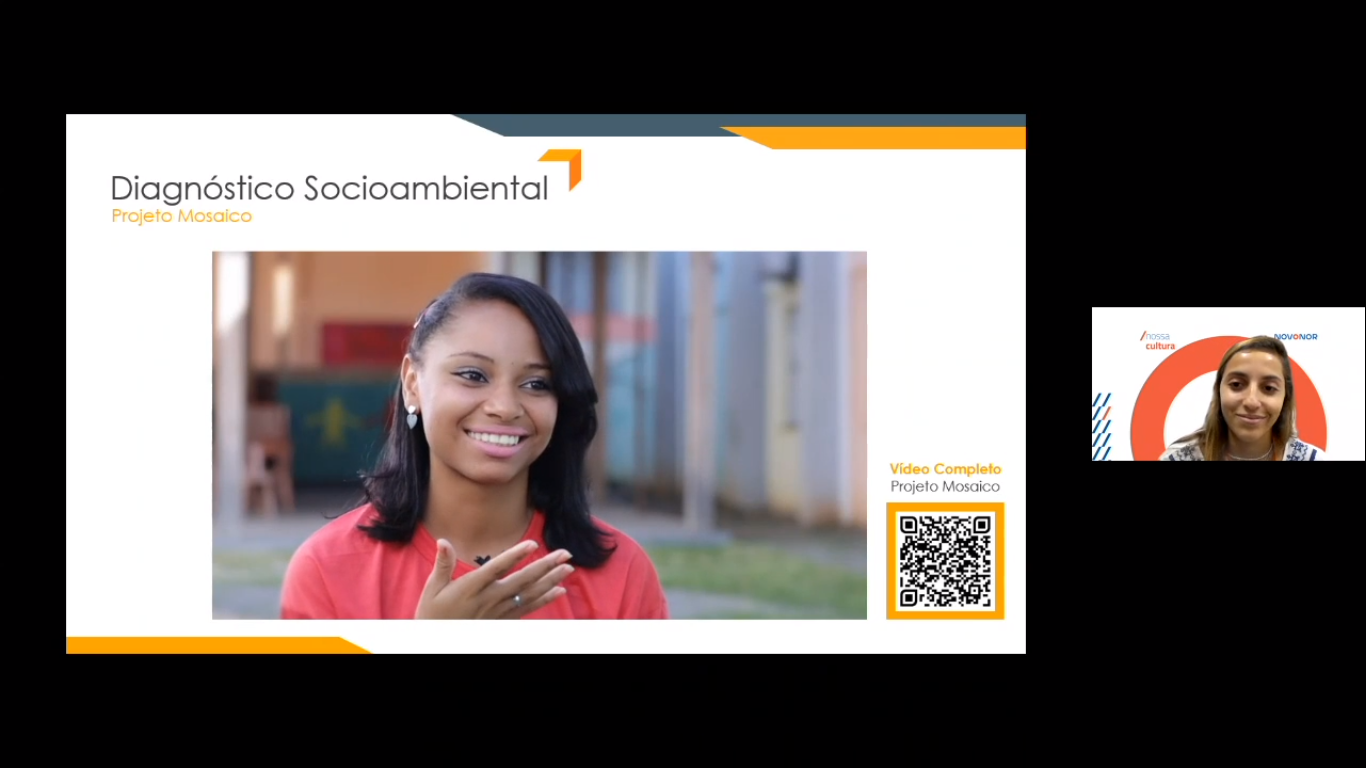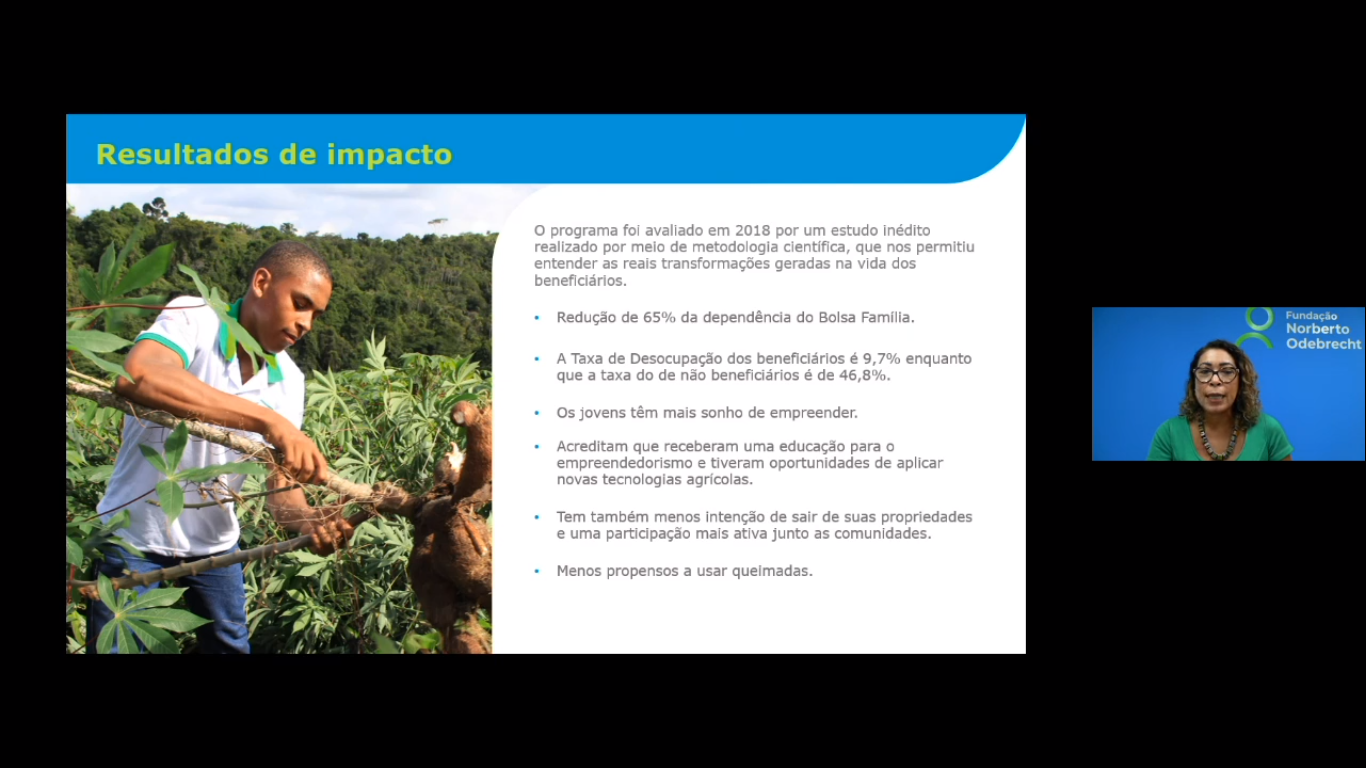Contributing to expanding access to the Our Culture collection, the Norberto Odebrecht Foundation (FNO) has just launched the digital...
Actions that transform communities are the focus of this edition of Impact Dialogues
DATE: 02/18/2022
Event promoted by Norberto Odebrecht Foundation gathered speakers from Braskem and OR
What actions are Novonor Group organizations taking to transform the communities in which they operate? The 135 people who attended the second edition of the Impact Dialogues event, held online this Friday (18), had this question answered by the Norberto Odebrecht Foundation, OR and Braskem in a stimulating chat. With the topic ‘Acting locally for sustainable development’, the event brought together Cristiane Nascimento, responsible for Sustainability, Partnerships and Communication at the Foundation, who also mediated the event; Elaine Santana, Social Responsibility and Human Rights leader at Braskem; and Wendy Wicks, from the Health, Workplace Safety and Environment team at OR.

“We came in above our ESG goals, precisely because of these actions that we take inside and outside of our surroundings,” said Wendy Wicks, from OR
Starting the discussion, Wendy Wicks presented to the audience some of OR’s main social impact initiatives, such as planting seedlings, supporting Civil Society Organizations (CSOs), and professional training for communities. “We held, for example, an administrative assistant course with 149 people from communities near one of our real estate developments,” she commented. “Most of the students were women, and we know that these young people were later hired in hotels near the area,” he added.
Wendy explained that the holding of initiatives such as this one ensured the company a great placement in the diagnosis conducted by the Center for Building Technology (CPE), even in comparison with other organizations in the industry. “We stay above our ESG targets, precisely because of these actions we take inside and outside our surroundings,” she said.

“We stand with the ESG commitment by encouraging a balance between agricultural production and environmental preservation, and by promoting inclusion and generating job opportunities and increased income,” explained Cristiane Nascimento, from the Norberto Odebrecht Foundation.
The Norberto Odebrecht Foundation is also involved in ESG – Environmental, Social and Governance – criteria, a fact that was highlighted in Cristiane Nascimento’s presentation. “We stand with this commitment by encouraging a balance between agricultural production and environmental preservation, as well as in the social dimension, in which we promote inclusion through education, generating job opportunities and increased income,” she described. “As for the Governance criterion, we ensure social management that is committed to all stakeholders.”
At the end of her speech, Cristiane also presented a video telling the story of Carolaine (you can watch it by clicking here), a young rural producer that exemplifies the social impact generated by the PDCIS, a Social Program currently being executed in the Southern Bahia Lowlands and about to be implemented in Rio de Janeiro. “After having its impacts proven, our technology is ready to be reapplied in other contexts, meeting the demands of institutions and social investors interested in promoting sustainable territorial development,” she concluded.
Another highlight of the edition was how the social impact actions promoted by each organization are strengthened with the engagement of the members. Elaine Santana, from Braskem, gave clear examples of this relationship when presenting numbers from the institution’s Volunteer Program. “Encouraging volunteerism is about giving our employees the support to bring their solidarity to the communities in which they live. In 2021, the participation was 19% of all company members,” he described. Other Braskem initiatives were also presented, such as the PlastiTroque and Ser+ projects, which supported collectors of recyclable materials. “These people use plastic as a way of life, and we are making sure that they have income and, thus, social inclusion,” Elaine said.
Did you miss the second edition of the Impact Dialogues? The complete event can be watched here.



No comments